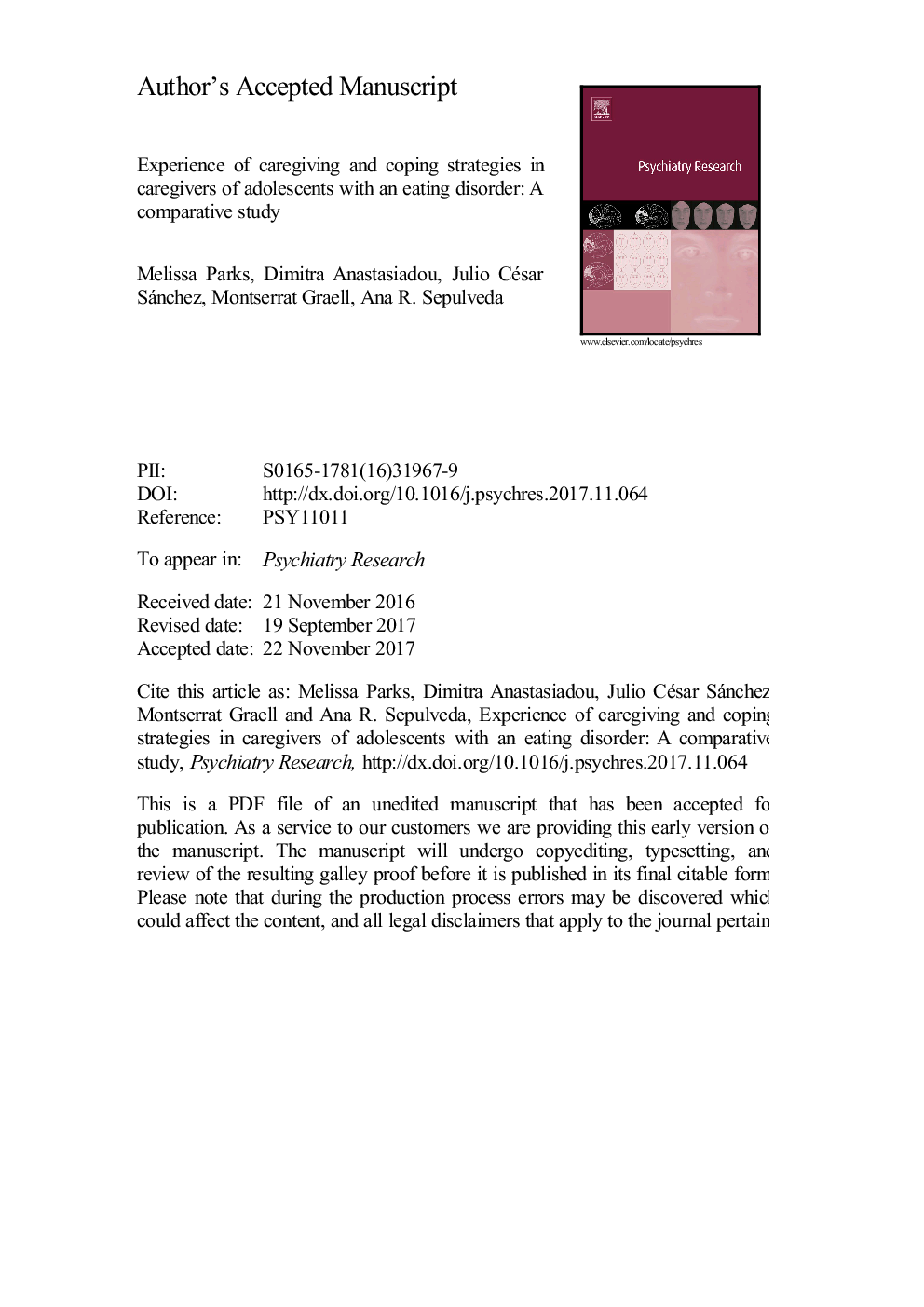ترجمه فارسی عنوان مقاله
تجربه مراقبت و مقابله با استراتژی های مراقبتی نوجوانان مبتلا به اختلال خوردن: یک مطالعه مقایسه ای
عنوان انگلیسی
Experience of caregiving and coping strategies in caregivers of adolescents with an eating disorder: A comparative study
| کد مقاله | سال انتشار | تعداد صفحات مقاله انگلیسی |
|---|---|---|
| 116242 | 2018 | 30 صفحه PDF |
منبع

Publisher : Elsevier - Science Direct (الزویر - ساینس دایرکت)
Journal : Psychiatry Research, Volume 260, February 2018, Pages 241-247
ترجمه کلمات کلیدی
مراقب مراقب اختلالات اشتها، اختلالات مصرف مواد، نوجوانان
کلمات کلیدی انگلیسی
Caregiver; Carer; Eating disorders; Substance use disorders; Adolescent;

